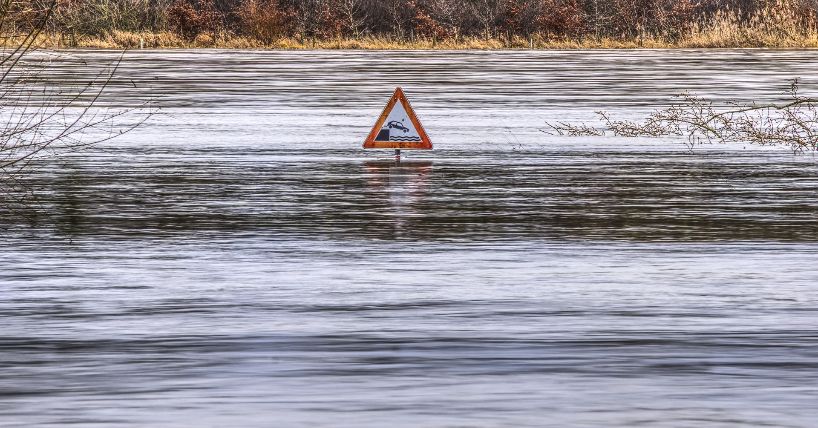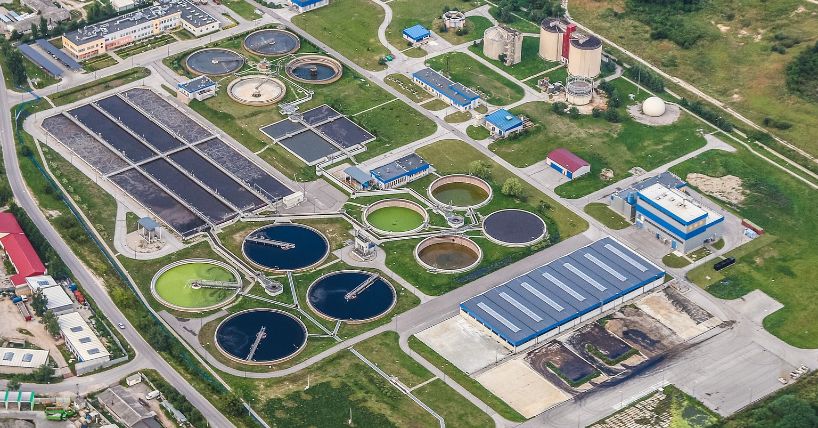Water
Making catchments, cities, and infrastructure more productive, safer, and sustainable.
Grounded in both science and engineering, the Water Group was established in 1984.
Our research is cutting edge and diverse. It informs our teaching, for both undergraduates and postgraduates. Organisations, institutions and communities worldwide use our research to inform their decision making.
Watch: Celebrating 70 Years of Water Research At Newcastle University
Watch: How Newcastle University Are Tackling Water Security and Sustainable Development
-(1)-(1)-(1).jpg)
Our research areas
Our research themes integrate advanced computer simulation capabilities, statistical methods, and systems modelling.
Our work often cuts across themes and research disciplines. We lead the GCRF Water Security and Sustainable Development Hub. The project brings together leading researchers from around the world. The work is funded by UK Research and Innovation (UKRI).
We have a long-term commitment to field experimentation and engineering interventions at a range of scales.
We have organised our research around five inter-related themes:
Teaching
Taught Programmes
From day one, our Civil Engineering Undergraduate Programmes give students a path to become a professional engineer, addressing major global challenges.
Our Civil Engineering Postgraduate Taught (MSc) Programmes equip students with the advanced skills and expertise to help shape the world.
Our MSc programmes
Our integrated suite of MSc courses provides a choice of specialist training within a common framework of sound hydrological and water resource management. The courses contain six modules in common. Each module provides a solid foundation in the basic principles of:
- hydrology
- data capture and management
- computer modelling
- river basin management
- mathematical methods
- Geographic Information Systems (GIS)
These modules equip students with the basic expertise needed to become hydrological and water management professionals.
Students then take four further modules to develop the specialism of individual courses. For example, they may choose to study:
- climate change impact and adaptation
- flood forecasting
- groundwater modelling and assessment
- pollution control engineering
- hydrosystems processes and modelling
Some of these specialist modules are common to more than one course. Many are global in scope, and cover case studies and research from around the world.
A dissertation project complements the taught element. Students apply their learning in a short research study relevant to their chosen specialism.
The integrated nature of the courses allows flexibility in making a final choice after students arrive at Newcastle. It also means that students from all the courses study together on many occasions. This creates a more sociable learning environment. It maximises the opportunities for developing professional relationships.
All our courses are accredited by the Joint Board of Moderators, ensuring a strong foundation for a career as a professional engineer.
Find out more
Undergraduate study
Undergraduates have the opportunity to specialise in Water Resources Engineering in Year 4 of the Civil Engineering MEng Honours programme.
- Undergraduate Programmes in Civil Engineering
- Masters Courses in Civil Engineering
Our Reach
We teach talented students to the highest standards through our MSc, MEng, and PhD programmes. We educate the next generation of water researchers, policy-makers and professionals.
We are founding members of UKCRIC. In the North-East, we host:
- the National Green Infrastructure Facility
- the Newcastle Urban Observatory
We work in partnership with the Environmental Engineering Group. In collaboration with academics, government, industry and communities throughout the world, we are:
- transforming practice
- improving quality of life
- helping to deliver the United Nations Sustainable Development Goals
Managing global water supplies
The management of water resources is a source of potential conflict all over the world. This is particularly the case where supplies cross political boundaries. Newcastle University has earned a global reputation for applying solid science to bring resolutions to such issues.
Robust climate change risk assessment
Our research into stochastic rainfall models has transformed impact assessment of climate change and risk assessment of environmental hazards. Many industrial and business sectors now base assessments on our work.
Read more about Robust climate change risk assessment
Advising the government: UK committee on climate change
Richard Dawson, Head of the Water Group, is a member of the Committee on Climate Change Adaptation Committee. He plays a key role in helping to provide expert advice to the UK and devolved governments and parliaments on preparing for, and adapting to, climate change.
Read more about Advising the government: UK Committee on Climate Change
Nature-based engineering solutions to reduce the impact of flooding
The town of Belford in Northumberland has records of flood events dating back to 1877. Traditional flood defences are not suitable. We worked in partnership with the North East Local Levy team. Together, we addressed the flood problem using soft engineered runoff management features.
Read more about Nature-based engineering solutions to reduce the impact of flooding
Supporting the National Infrastructure Commission's first National Infrastructure Assessment
We belong to the UK Infrastructure Transitions Research Consortium (ITRC). The consortium is a collaboration of seven universities and over 55 partners from infrastructure policy and practice. The UK’s first National Infrastructure Assessment was backed by ITRC analysis.
Communicating our work to the wider public
We showcase our work in a variety of ways. In 2017, FLOOD! was hosted at the Great North Museum. Visitors experienced a mixture of interactive games, videos and virtual reality. They found out what floods are, why they happen, and how they might change.
- Read more about Communicating our work to the wider public
Transforming Newcastle into a Smart City at the Urban Observatory
We co-lead the Urban Observatory. We use the largest set of publicly available real time urban data in the UK to improve our ability to forecast flooding.
Read more about Transforming Newcastle into a Smart City at the Urban Observatory
Managing urban flood risk in partnership with Northumbrian Water Group
Flood Force: finding solutions in good company is the result of a winning idea submitted to the first LWEC short film competition. The submission was by Northumbrian Water and Newcastle University. We used the North East’s experience of flooding from extreme rainfall to show how leading UK research can contribute to better decision-making. It places a particular emphasis on how business can take action to reduce the risk and the costs of flooding.
Watch the video Flood Force: finding solutions in good company
Engagement
Engagement is integral to our ethos. Our work provides mutual benefit for both the University and our external partners. Read about some of our case studies having an impact at local, national and international levels:
- UKCP09 weather generator
- the Belford catchment study
- EPSRC Infrastructure Transitions Research Consortium
We welcome collaborative opportunities from a wide range of partners.
Collaboration and partnership
We work collaboratively with many partners in our education and research programmes. This ensures our students are ready to work in the water sector, and to maximise the impact of our research.
We work with a range of partners in Newcastle, the UK, and internationally, including:
- multi-national corporations and SMEs
- the public sector
- civil society
- professional institutions
- voluntary organisations
- schools and colleges
- policymakers
Our collaborations
Northumbrian Water Group
We work with NWG on a variety of projects. For example, take a look at Flood Force: finding solutions in good company, a short film on managing urban flood risk.
JBA Consulting
JBA co-supervised an MSc project to improve how their JFlow model simulated river channel conveyance.
Contact Head of Group Professor Richard Dawson or any other member of staff in the group to discuss how we can collaborate in our education or research activities.
Join Us
An internationally-leading group in research, teaching, and engagement with industry and society. We offer excellent opportunities across all these areas. Join us in a range of exciting activities. The Water Group includes a wide-ranging team of academic and research staff, PhD and MSc students.
Job vacancies
We often have exciting opportunities available to join our team. Check Newcastle University job vacancies for current opportunities.
If you are a full professor interested in moving to Newcastle University, contact Head of Group Professor Hayley Fowler in the first instance.
PhD opportunities
Various funded PhD studentships related to our research are available. Funding from the Engineering and Physical Sciences Research Council (EPSRC) and the Natural Environmental Research Council (NERC) allows us to offer a variety of opportunities.
Take a look at our current PhD candidates and our staff research interests to get an idea of the opportunities available.
You can also study with us via a UKRI-funded CDT or DTP:




